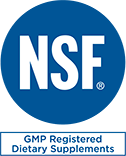In Europe, the Food Supplements Directive (FSD) Directive 2002/46/EC (as amended), establishes a definition for food supplements and a list of allowable vitamins and minerals, and it sets requirements for labeling.
Food supplements are defined as “foodstuffs the purpose of which is to supplement the normal diet and which are concentrated sources of nutrients or other substances with a nutritional or physiological function, alone or in combination, marketed in dose form, namely forms such as capsules, pastilles, tablets, pills and other similar forms, sachets of powder, ampoules of liquids, drop dispensing bottles, and other similar forms of liquids and powders designed to be taken in measured small unit quantities.”
Although the FSD calls for the establishment of harmonized minimum and maximum dosage amounts, this has yet to be done and remains a competence of EU member states. Substances other than vitamins and minerals are also still governed by individual EU member states, as they are not directly covered by the directive.
The European Food Safety Authority (EFSA) evaluates the Safety and Efficacy of Food Supplements. EFSA, established in January 2002, serves as an independent source of scientific advice which is used by the European Commission in considering legislation. EFSA works in close collaboration with national authorities and in open consultation with its stakeholders.
The European Commission has tasked EFSA with evaluating proposals for the addition of vitamins and minerals to the Food Supplements Directive and evaluating nutrition and health claims. EFSA works with the European Commission on assessing how to establish maximum limits for vitamins and minerals in food supplements and fortified foods, and it also provides opinions on substances other than vitamins and minerals.
Natural Immunogenics (NIC) presented a technical dossier on Silver Hydrosol to the EFSA in 2005. After 3 years of evaluation, EFSA found that the totality of evidence submitted was “insufficient to assess the safety” of the product1. To keep silver hydrosol available to patientele in the European Union, NIC decided to market its products for “external use,” while continuing to send EFSA additional safety information for consideration in its risk assessment. Thus Sovereign Silver remains on the European market, despite regulatory agencies’ determination that colloidal silver products are not safe and therefore cannot be marketed for ingestion.
As Silver Hydrosol was recognized as Safe and Effective by the Canadian health authority under Product License Numbers (NPN) 80041271; 80066696; and 80071661). NIC continues to pursue European approval for our Silver Hydrosol products through the European Commission and the EFSA.
Previous: Canadian Regulations

